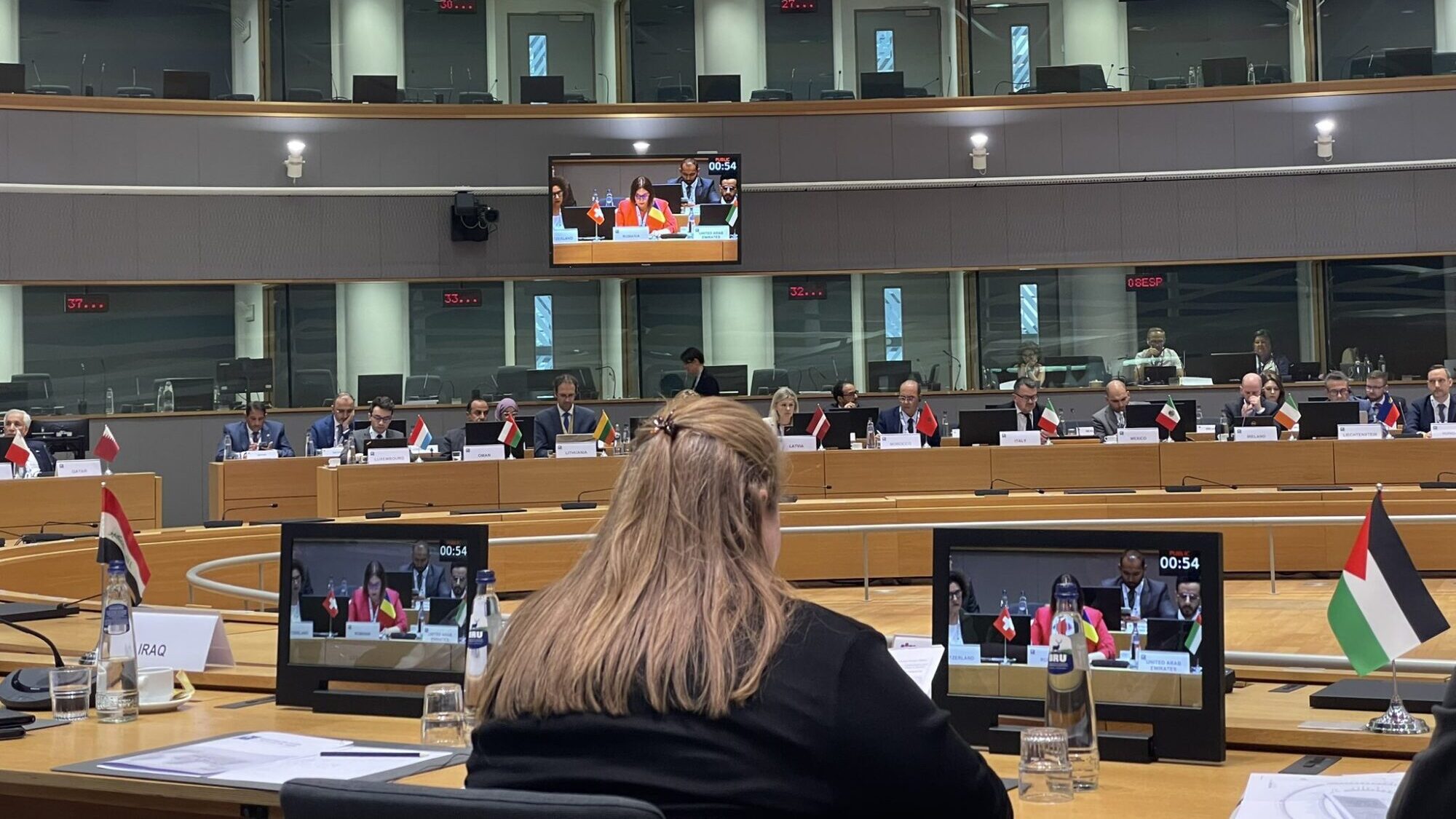
Photo: Dan Stoenescu / Facebook
European leaders gave no indication of a potential thawing of relations with the government of Syrian President Bashar al-Assad. This comes in the wake of talks between EU officials, NGOs and Syrian opposition figures who met in Brussels Wednesday, June 15th, to discuss humanitarian aid to the civil war-ridden nation.
EU member states and institutions pledged an additional €5.6 billion to aid Syrian refugees at a fundraising conference hosted by the European Council in Brussels, at the same time as the EU’s foreign policy chief Josep Borrell ruled out normalising relations with the Damascus regime anytime soon.
In May, the Arab League voted to bring Syria back into the organisation. Various Middle Eastern nations have in the past year buried the hatchet with the Assad government. This was done with a nod towards pragmatism, as both Saudi Arabia and the UAE lobby the EU to bring the Syrian government back in from the cold and to lift sanctions.
The Gulf States argue that removing sanctions is essential to attracting Syrians back home. Saudi Crown Prince Mohammed bin Salman discussed the topic in a bilateral meeting with President Macron in Paris on Friday, June 16th.
After 2 days in #Brussels at the 7th Conference on #Syria organized by the #EU, @FCarboniICRC shares his main takeaways from the discussions.
— ICRC Brussels (@ICRC_bxl) June 15, 2023
Watch the full video
🔽 🔽 🔽 pic.twitter.com/EmXG1R2Nqw
Since 2011, Syria has been mired in a ferocious civil war that has pitted the Assad government against a coalition of Kurdish separatists, Salafists, and anti-government opposition fighters. The conflict was a major factor in the post-2014 European migrant crisis and the rise of extremism in the Middle East.
During the 7th Brussels Conference on 'Supporting the future of Syria and the Region' on 15 June, the international community pledged €5.6 billion for 2023 and beyond, including €4.6 billion for 2023 and €1 billion for 2024 and beyond. The funding pledged today will support… pic.twitter.com/wC6O0kFmvy
— Dr Dan Stoenescu (@DanStoenescuEU) June 16, 2023
The EU first implemented sanctions against Syria following the outbreak of violent protests in 2011. The continuation of the sanctions were severely criticised by aid agencies for hampering the flow of humanitarian relief following February’s earthquake on the Syrian-Turkish border.
Regardless, EU leaders have stayed firm in their stance on maintaining sanctions. European officials repeated at the Brussels conference that restrictions would remain in place until the implementation of UN Resolution 2254, which calls for an end to hostilities and the organisation of Western-monitored elections in Syria.
In a statement to The European Conservative, former NATO advisor and Director of the Global Public Policy Institute Philipp Rotmann, a conference attendee, said any move to normalise relations would “end all hopes of an eventual return for millions of Syrians” and set a bad example for authoritarians worldwide.
The Western approach to Syria has long been castigated for failing to acknowledge the place of Assad in any post-conflict settlement, as well as for the tacit support given to Islamist extremism through the backing of the Syrian opposition. A total of twelve million Syrians are displaced internally and externally, with just under two million Syrian refugees estimated to have resettled in Europe.
The continuing impact of Syria on the European agenda was made tragically clear by the drowning of an unknown number of Syrians crossing the Mediterranean this week and a terrorist attack on French children in Annecy by a Syrian refugee. Sadly, the Syrian crisis shows no sign of going away, even with the newly announced aid package.
